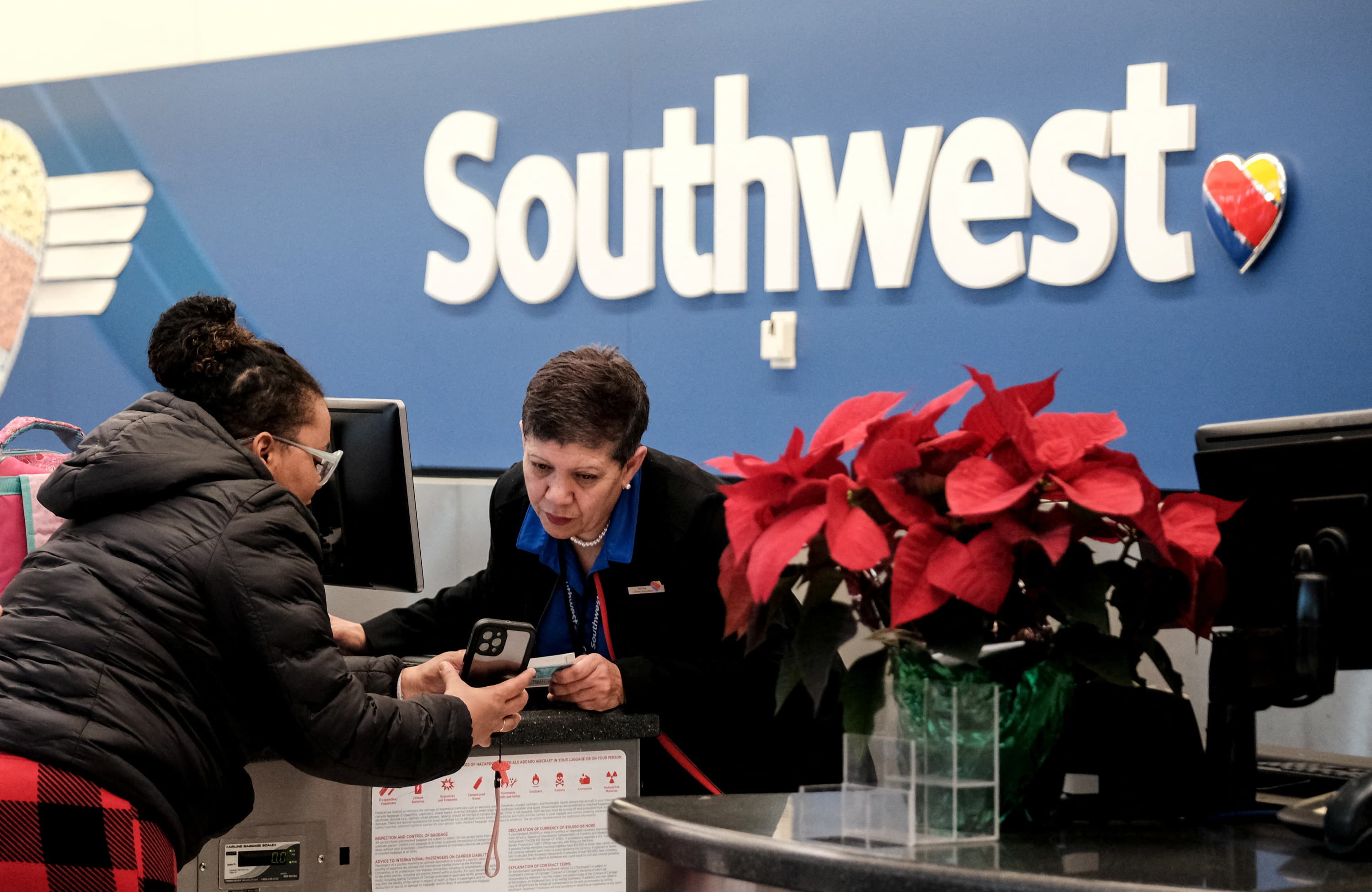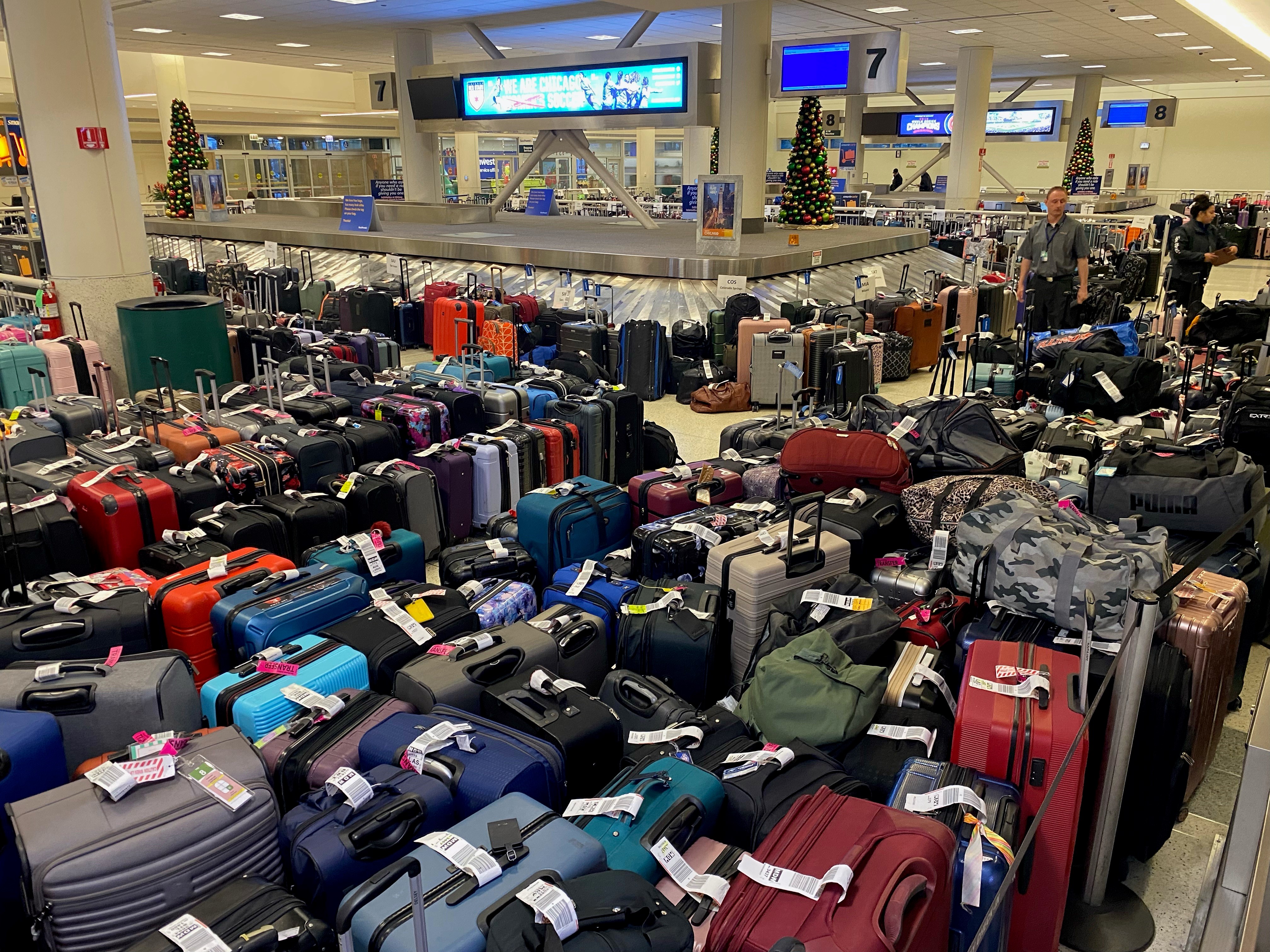The reason Southwest Airlines has seen as many as 70% of its flights canceled in one day, while other airlines have seen far lower numbers, has less to do with the weather than you think.
"We’ve lacked infrastructure for years and years and years,” said Capt. Tom Nekoeui, the second vice president of the Southwest Airlines Pilots Association (SWAPA), the union that represents the airline's pilots.
According to Nekoeui, the cancellations have to do with something called the "point-to-point" model. The term refers to how Southwest Airlines sets its routes.
What is the 'point-to-point' model?
We've got the news you need to know to start your day. Sign up for the First & 4Most morning newsletter — delivered to your inbox daily. Sign up here.
"What we do at Southwest — what we’ve done from our inception — has been [that] we go from Austin to San Antonio to Dallas. We go from Denver to Colorado Springs to Albuquerque. And that point-to-point system is something that the legacies don’t do," Nekoeui said.
Travel Coverage:
What's the 'hub-and-spoke' model?
By "legacies," Nekoeui is referring to legacy airlines like American, United and Delta. These airlines use what's called the "hub-and-spoke" model. Unlike the point-to-point model, this model doesn't have aircraft going from one city to the next without ever returning to a home city. The hub and spoke model establishes hubs, or cities, where flights emanate from and return to every single day.
“They have hubs in Chicago, Atlanta, Denver, and they venture out from there. And they go anywhere you want to go from Denver, for instance. They either have their mainline fleet or their express fleet that operates from that hub, basically the mothership to all these different cities," Nekoeui said.
Whereas Southwest may send an aircraft directly from Seattle to Chicago and then to Miami, an airline using the hub-and-spoke model might send an aircraft from Los Angeles to Chicago and Chicago to Los Angeles only. It would use another aircraft to carry out the Chicago to Miami flight.
That way, if a winter storm blanketed Seattle in a blizzard, flights out of Seattle would be impacted, but flights out of Chicago would likely not. In other words, this prevents weather chaos in one region of the country from poisoning the entire well.
Why does Southwest use the point-to-point model?
At some point, it gave the airline the ability to do more with less, Nekoeui said. It's given the airline the ability to cover more of the country with fewer aircraft. "Historically, it’s worked well for us when we were a small airline, but now we are the largest airline in the world when you look at passengers and pilots," Nekoeui said.
What else is causing the backlog?
Another reason Southwest is struggling to get passengers rebooked has to do with software, according to the Southwest pilot’s union. "We have pilots around the system that the company, they don’t know where they are," Nekoeui said. "They don’t know where the pilots are.”
Whereas other airlines use algorithms to tell them when a pilot can't make a flight, Southwest’s system is more manual and requires human intervention, says SWAPA.
So if a pilot didn’t make a flight in Austin and is now driving to Dallas to make his next flight, a human has to input that information. Updating staffing lists manually may be tenable when it's one or two flight cancellations at a time, but it can get difficult when there are 2,500 flight cancellations.
Other airlines have more automatic ways of updating staffing sheets, according to Nekoeui.
"The software system that they use is just algorithms, and we haven’t learned from them," Nekoeui said. "You can see that now with the meltdowns that we’re having. They’re getting worse, and they’re taking longer and longer to recover."
What does Southwest say?
We contacted Southwest Airlines to see if they agreed with Nekoeui’s assessment of the causes behind its cancellations, and they said, in part:
“Our technology struggled to align our resources due to the magnitude and scale of the disruptions. In our desired state, we will have automation that can handle Crew reassignments quickly and efficiently. We are focused on making investments in technology upgrades to work toward that solution and obviously need to complete that work.”



